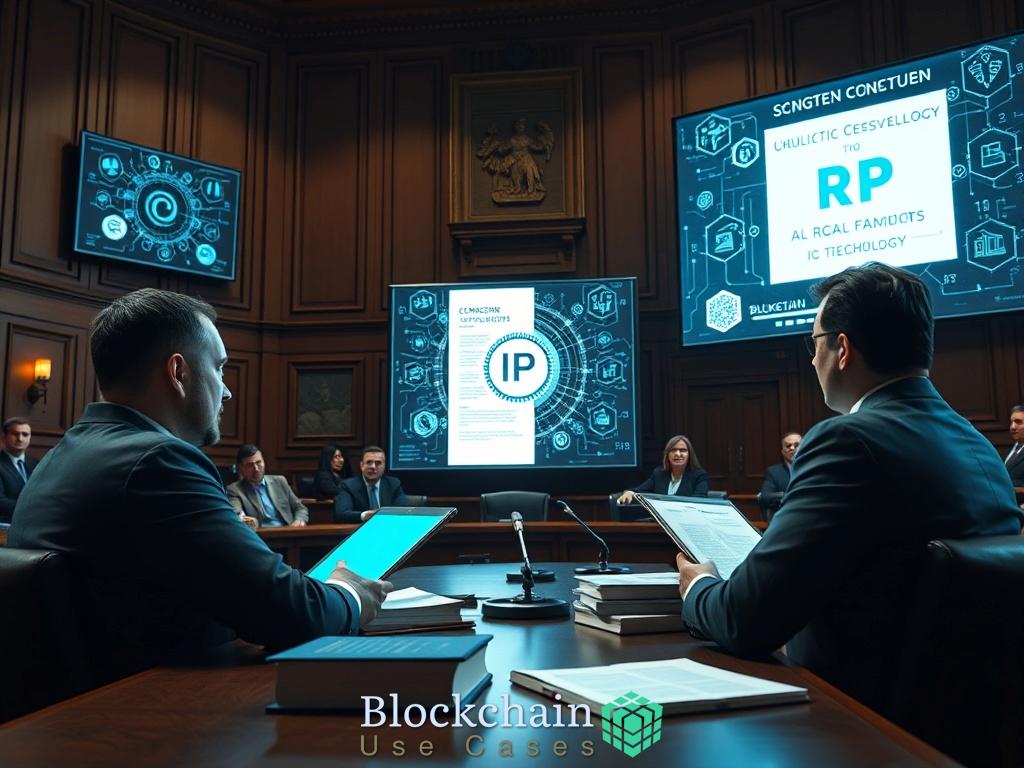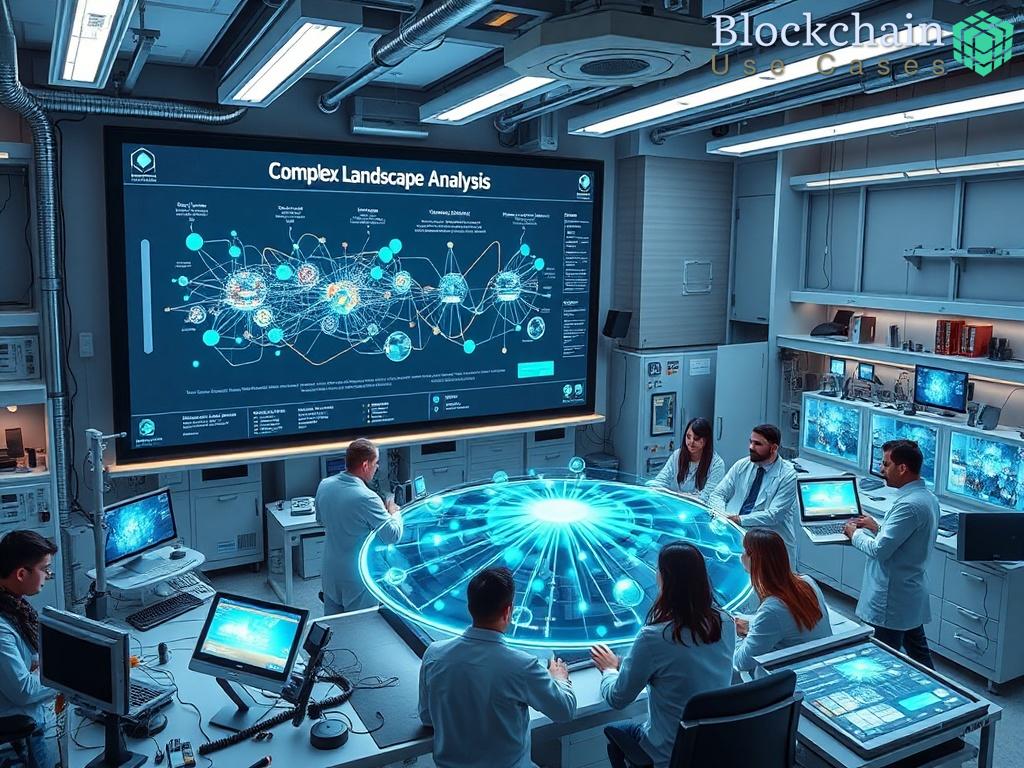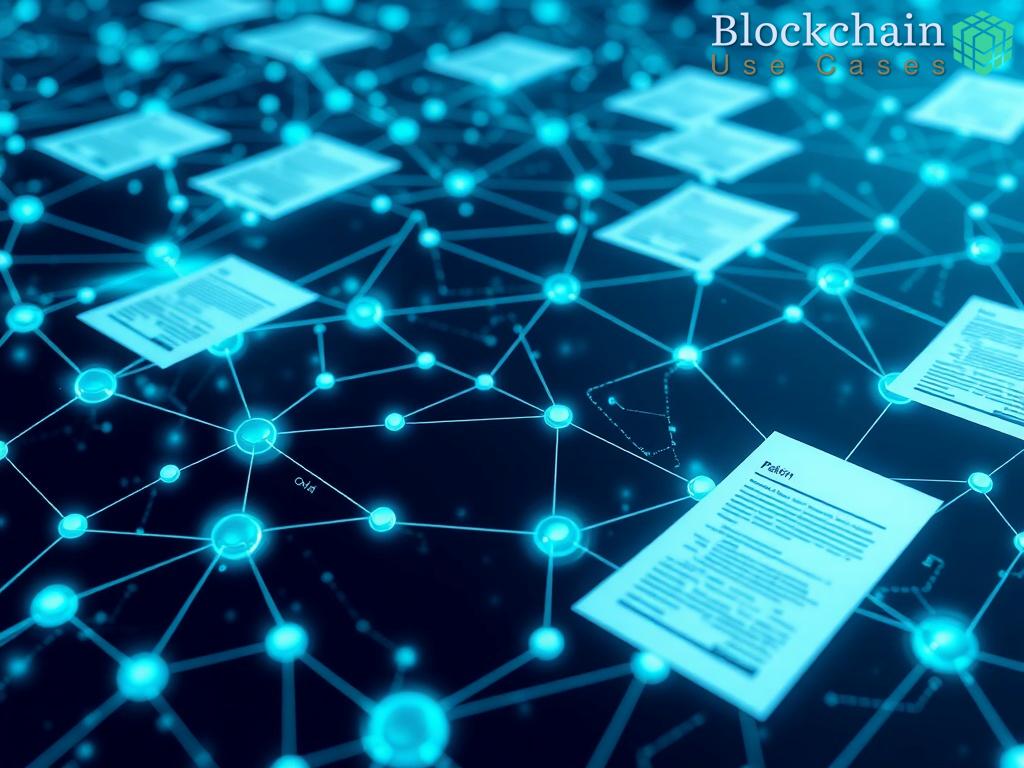Overview of Decentralized Platforms in IP Management
The digital age has brought about significant challenges for intellectual property (IP) management, necessitating a shift toward innovative solutions. Decentralized platforms are emerging as a vital resource for assessing and managing IP risks. These blockchain-based systems provide transparency, security, and automation, which are crucial in today’s rapidly evolving technological landscape.
By leveraging decentralized technologies, organizations can streamline their IP processes, reduce costs, and enhance collaboration across borders. This article delves into how these platforms are revolutionizing the management of intellectual property.
Decentralized IP management platforms distinguish themselves through a variety of compelling features that address traditional pain points in IP management. These platforms utilize blockchain technology to ensure the integrity and traceability of IP assets, which enhances confidence among users and stakeholders.
Some of the standout features include:
- Transparency: All transactions on the blockchain are recorded and accessible, providing a clear audit trail for IP ownership and usage.
- Security: Smart contracts automate and enforce agreements, thereby minimizing the risk of fraud and unauthorized use.
- Global Reach: Decentralized platforms operate on a global scale, enabling creators and businesses to manage their IP assets without geographical limitations.
- Cost Efficiency: By eliminating intermediaries, these platforms reduce the costs associated with IP registration and enforcement.
The future of intellectual property management is undoubtedly leaning towards decentralization. As more organizations recognize the benefits of these platforms, we can expect a paradigm shift in how IP is perceived and managed. The ongoing advancements in blockchain technology will likely enhance the capabilities of these platforms, making them even more attractive for IP management.
Furthermore, as regulatory frameworks evolve to accommodate decentralized technologies, the legal landscape surrounding IP will also transform. This change will foster greater innovation and protection for creators, ultimately stimulating economic growth.
In summary, decentralized platforms are not just a trend; they represent a fundamental shift in how intellectual property is managed. As we move forward, embracing these technologies will be essential for any organization looking to safeguard its intellectual assets effectively.
Technological Innovations in IP Risk Assessment
The landscape of intellectual property (IP) risk assessment is undergoing a remarkable transformation, driven by technological innovations that enhance the accuracy, efficiency, and effectiveness of risk management strategies. As organizations increasingly adopt decentralized platforms, the integration of cutting-edge technologies has become essential. These innovations not only streamline processes but also provide powerful tools for identifying, analyzing, and mitigating IP-related risks.
Artificial Intelligence as a Game Changer
One of the most exciting developments in IP risk assessment is the incorporation of artificial intelligence (AI) and machine learning algorithms. These technologies enable the analysis of vast datasets to identify patterns and predict potential risks associated with IP assets. By leveraging AI, organizations can conduct comprehensive risk assessments that consider various factors such as market trends, competitor activities, and historical data. This proactive approach allows businesses to anticipate potential threats and implement strategies to safeguard their intellectual property.
Real-Time Analytics and Monitoring
The advent of real-time analytics has revolutionized how IP risks are monitored and assessed. Decentralized platforms equipped with advanced analytics capabilities can provide immediate insights into IP usage, infringement activities, and compliance with licensing agreements. This continuous monitoring ensures that organizations remain vigilant and can respond swiftly to any emerging threats. Furthermore, the transparency offered by blockchain technology ensures that all data is securely stored and easily accessible, enhancing the reliability of the analytics.
Smart Contracts for Risk Mitigation
Smart contracts play a pivotal role in mitigating IP risks by automating the enforcement of agreements. These self-executing contracts, which are built on blockchain technology, eliminate the need for intermediaries and reduce the potential for disputes. By codifying the terms of agreements, organizations can ensure that their IP rights are upheld automatically, thus minimizing the risk of unauthorized use or infringement. This innovation not only protects the IP but also fosters trust among stakeholders, as the terms of the contract are transparent and immutable.
As organizations continue to navigate the complexities of IP management, the integration of these technological innovations into decentralized platforms will be paramount. The combination of AI, real-time analytics, and smart contracts represents a transformative shift in how IP risks are assessed and managed. Embracing these advancements will not only enhance the protection of intellectual property but also drive greater innovation and collaboration across industries.
Legal Implications of Decentralized IP Solutions

Legal Frameworks in a Decentralized Context
The emergence of decentralized platforms for intellectual property (IP) management brings forth a complex interplay between technology and law. As these platforms leverage blockchain and smart contracts, they challenge traditional legal frameworks that govern IP rights. Consequently, understanding the legal implications of these innovations is essential for stakeholders aiming to navigate this new territory effectively.
In many jurisdictions, existing IP laws were not designed to accommodate decentralized technologies, leading to ambiguities regarding ownership, enforcement, and dispute resolution. As organizations adopt these platforms, they must also consider the evolving legal frameworks that are beginning to take shape to address these challenges.
Intellectual Property Ownership and Transferability
One of the most significant legal implications of decentralized IP solutions is the issue of ownership and the transferability of IP rights. Blockchain technology enables the secure recording of IP ownership on a distributed ledger, ensuring that rights are traceable and verifiable. However, the question remains: how do traditional laws interact with these new forms of ownership?
For instance, the transfer of IP rights through smart contracts may not align with traditional legal requirements for registration and documentation. This discrepancy could lead to disputes over ownership, especially in cases where multiple parties are involved. Organizations must therefore ensure that their smart contracts are compliant with existing legal standards to avoid potential litigation.
Challenges in Enforcement and Dispute Resolution
While decentralized platforms enhance transparency and security, they also introduce challenges in enforcement and dispute resolution. Traditional legal systems are often slow and cumbersome, and the global nature of decentralized platforms can complicate jurisdictional matters.
To address these challenges, organizations utilizing decentralized IP solutions must consider implementing robust mechanisms for dispute resolution. This could involve agreeing to arbitration clauses within smart contracts or employing decentralized autonomous organizations (DAOs) to handle conflicts collectively.
Here is a brief overview of key legal implications to consider:
- Jurisdictional Issues: Determining which laws apply in a decentralized environment can be complex.
- Compliance with Existing Regulations: Organizations must ensure that their decentralized practices comply with local and international IP laws.
- Dispute Resolution Mechanisms: Effective strategies must be developed for resolving conflicts arising from decentralized transactions.
- Smart Contract Validity: The enforceability of smart contracts can vary by jurisdiction, necessitating legal scrutiny.
In essence, as decentralized platforms reshape the landscape of IP management, it is crucial for organizations to remain informed about the legal implications of their actions. By proactively addressing these issues, they can better safeguard their intellectual property while embracing the benefits of innovative technologies.
Case Studies of Successful IP Management on Decentralized Platforms
Innovative Applications of Blockchain in IP Management
The transformative power of decentralized platforms is increasingly evident through a multitude of case studies that showcase successful IP management. These platforms are not merely theoretical constructs; they have been operationalized in various sectors, demonstrating tangible benefits in the realm of intellectual property. The integration of blockchain technology has allowed organizations to enhance the security and efficiency of their IP management processes while navigating the complexities of risk assessment.
One notable example is the music industry, where platforms like Myco have emerged as pioneers in using blockchain for managing copyright and royalties. By providing a transparent ledger of music ownership and usage, Myco enables artists to receive fair compensation for their work without the need for intermediaries. This model not only mitigates risks associated with misappropriation but also fosters greater trust between creators and consumers.
Revolutionizing Patent Management
In the realm of patents, the case of IPwe illustrates the potential of decentralized platforms to streamline processes and reduce costs. IPwe employs blockchain technology to facilitate the buying, selling, and licensing of patents, creating a global marketplace where IP assets can be easily identified and valued. This approach minimizes the risks tied to patent disputes by ensuring that all transactions are recorded and traceable, thus providing clarity and security for all parties involved.
Furthermore, IPwe’s platform leverages AI to assess patent quality and relevance, allowing users to make informed decisions about their IP investments. By integrating smart contracts, the platform automates the enforcement of licensing agreements, reducing the likelihood of infringement and ensuring compliance. This innovative combination of technologies exemplifies how decentralized platforms can redefine traditional IP management frameworks.
Building a Collaborative Ecosystem
Beyond individual industries, decentralized platforms are fostering collaborative ecosystems that enhance IP management on a broader scale. The Open Music Initiative (OMI) serves as an excellent illustration of this phenomenon. By bringing together stakeholders from various sectors, including artists, record labels, and technology providers, OMI aims to create a standardized framework for music rights management using blockchain technology. This collective effort not only streamlines the licensing process but also addresses the challenges of data fragmentation and ownership disputes.
As organizations continue to adopt decentralized platforms for IP management, these case studies highlight the significant advantages of transparency, security, and collaboration. The ongoing success of these initiatives suggests that decentralized technologies will play an increasingly critical role in shaping the future of intellectual property management, ultimately benefiting creators, businesses, and consumers alike.
Future Trends in Decentralized Intellectual Property Systems
The evolution of decentralized platforms for intellectual property (IP) management is poised to accelerate in the coming years, driven by advancements in technology, regulatory changes, and shifting market demands. As organizations increasingly recognize the potential of blockchain and decentralized systems, several key trends are emerging that will shape the future landscape of IP risk assessment and management. These trends will not only enhance the capabilities of existing platforms but also pave the way for innovative approaches to safeguarding intellectual property.
Enhanced Interoperability Among Platforms
One of the most promising trends is the growing emphasis on interoperability among different decentralized platforms. As multiple solutions arise, the need for these systems to communicate and share data seamlessly becomes critical. Enhanced interoperability will facilitate easier access to IP assets across various platforms, allowing stakeholders to manage their intellectual property more efficiently. This integration will ultimately create a cohesive ecosystem where data can flow freely, reducing duplication and increasing transparency.
Integration of Advanced Technologies
As the capabilities of decentralized platforms expand, the integration of advanced technologies such as artificial intelligence (AI), machine learning, and the Internet of Things (IoT) will become increasingly prevalent. AI can provide deeper insights into IP usage patterns, while machine learning algorithms can enhance predictive analytics for identifying potential risks. Additionally, IoT devices can facilitate real-time tracking of IP assets, ensuring that rights are enforced promptly and accurately. This convergence of technologies will empower organizations to adopt a more proactive approach to IP risk management.
Greater Regulatory Clarity and Adaptation
The legal landscape surrounding decentralized IP systems is gradually evolving, with regulatory bodies beginning to recognize the unique challenges these technologies present. As governments and international organizations work to establish clearer guidelines, businesses can expect more robust frameworks that support decentralized IP management. This regulatory clarity will not only foster trust among stakeholders but will also encourage wider adoption of these systems, as organizations feel more secure in their compliance with legal standards.
In summary, the future of decentralized platforms for intellectual property risk assessment and management is bright, characterized by enhanced interoperability, the integration of advanced technologies, and greater regulatory clarity. As these trends unfold, organizations that embrace these developments will be better equipped to navigate the complexities of IP management in an increasingly digital world.


















